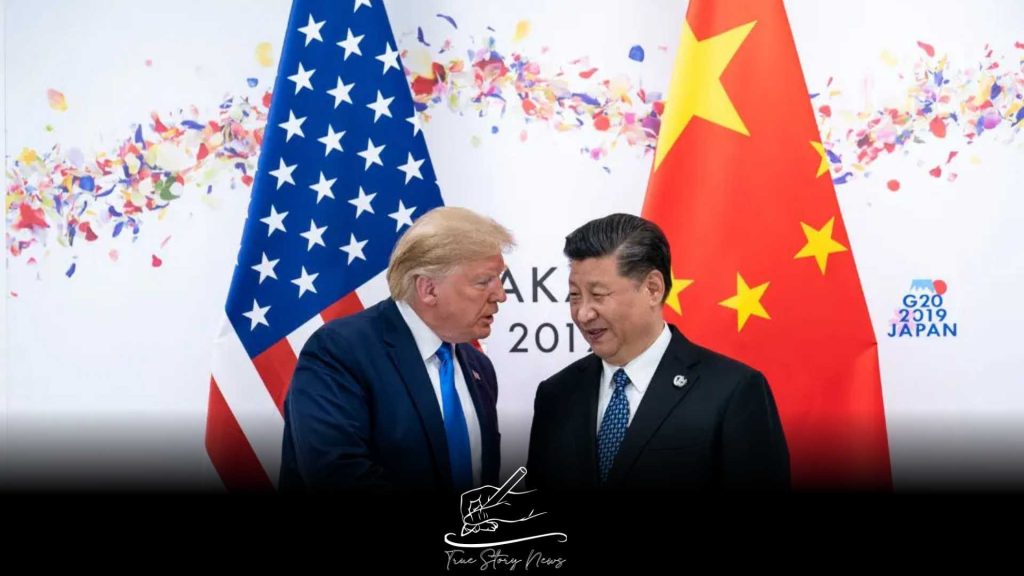U.S. President-elect Donald Trump steps into a complex landscape shaped by a recent recalibration of the United States-China relationship initiated by presidents Joe Biden and Xi Jinping. This diplomatic effort aims to elevate ties from a low point marked by the COVID-19 pandemic and escalating tensions surrounding Taiwan.
Formal discussions are currently underway addressing a variety of significant issues. However, regional diplomats and analysts express concern that these vital communication channels, essential for managing strained relations, may be at risk with Trump assuming the presidency. Among the topics covered are:
Defence
Enhanced communication between the Chinese and Philippine militaries has played a crucial role in alleviating tensions in regional hotspots. This comes as coast guard and fishing vessels from both nations engage in near-weekly confrontations in the contested South China Sea. Meanwhile, the Chinese Air Force continues to conduct combat readiness patrols near Taiwan, testing the island’s defences.
Analysts indicate that significant efforts are still required to enhance durability in the face of China’s military modernization and U.S. deployments, which aim to maintain traditional dominance in the Asian theatre.
Concerns are rising that military connections may be among the first to be severed in the event of renewed tensions, with observers recalling the prolonged military freeze that followed then-House Speaker Nancy Pelosi’s visit to Taiwan in August 2022, which lasted nearly two years.
Since the face-to-face meeting between Xi and Biden in November 2023, there has been a noticeable enhancement in communications across various defence sectors.
In a significant diplomatic development, Jake Sullivan, the national security adviser to President Biden, engaged in a rare meeting with Zhang Youxia, a prominent military adviser to Chinese leader Xi Jinping. This encounter took place over three days of discussions in Beijing in August. He has conducted a series of regular, high-level meetings with the chief diplomat, Wang Yi.
The initial discussions among theatre-level commanders in September highlighted a sustained effort by the U.S. to strengthen military relationships and mitigate misunderstandings in the context of escalating regional tensions.
Analysts suggest that the U.S. Indo-Pacific Command in Hawaii is expected to sustain its current deployment levels. However, the short-term uncertainty surrounding Trump’s strategy is anticipated to impact Chinese leaders and military commanders significantly.
“In this situation, it is anticipated that military leaders will exhibit heightened vigilance in their deployments around critical areas like the Taiwan Strait, the South China Sea, and contested regions with Japan,” remarked Alexander Neill, a security analyst based in Singapore.
“The leadership is averse to unpredictability,” stated Hawaii’s Pacific Forum fellow Neill.
The stalled discussions surrounding China’s expanding nuclear weapons program are expected to come under increased examination in the months ahead as the Biden administration seeks advancement while Beijing remains hesitant.
Analysts suggest that Beijing, possessing a significantly smaller arsenal than the United States and Russia, perceives limited benefits in engaging in such discussions.
“It is significant that despite the ongoing mild thaw in relations between Washington and Beijing, Beijing opted to halt arms control discussions with Washington earlier this year,” stated Jon Czin, a foreign policy expert at the Brookings Institution.
Fentanyl
Following the agreement between Xi and Biden to resume collaborative efforts during their meeting on November 23, there has been noticeable, albeit gradual, advancement in the fight against the illicit trafficking of chemicals utilized in the production of lethal fentanyl.
The United States, grappling with a significant rise in fentanyl-related fatalities, has urged China to implement stricter law enforcement measures. This includes addressing illicit financial activities and enhancing regulations on the chemicals involved.
In June, China’s leading prosecutor called on law enforcement officials to prioritize the fight against drug trafficking, coinciding with the announcement of an uncommon joint investigation into drug-related issues by Beijing and Washington.
In August, shortly following a meeting of a joint counternarcotics working group, China announced plans to enhance regulations on three chemicals critical for the production of fentanyl.
Climate change
Efforts in climate diplomacy between the leading contributors to greenhouse gas emissions have significantly contributed to the momentum of international agreements like the Paris Agreement. This collaboration has also fostered consensus during the recent COP28 meeting in Dubai.
As Trump prepares to withdraw from the Paris Accord for a second time, the collaboration between the two nations on climate matters is set to cease. However, initiatives at the subnational level, particularly with California and other states, are anticipated to persist.
The potential return of Trump to the White House raises concerns about the impact on U.S.-China relations, particularly regarding climate change initiatives. Beijing has expressed frustration over what it perceives as American “green trade barriers” affecting electric vehicles, batteries, and solar panels. This could complicate efforts to encourage China to set more aggressive emissions reduction goals for 2035.
Economics
The two rivals are engaged in regular working group meetings focused on economic and financial issues, a series that commenced in September 2023.
During a two-day meeting in Beijing this September, Chinese officials voiced severe concerns regarding the prospect of further U.S. tariffs, investment restrictions, and sanctions related to Russia.
Zhao Minghao from Fudan University’s Institute of International Studies emphasized the significance of the broader dialogue effort, noting that it has resulted in “meaningful progress.”
“However, Beijing harbours genuine apprehension regarding these discussions, which could potentially be suspended once more under a Trump administration,” he remarked.











